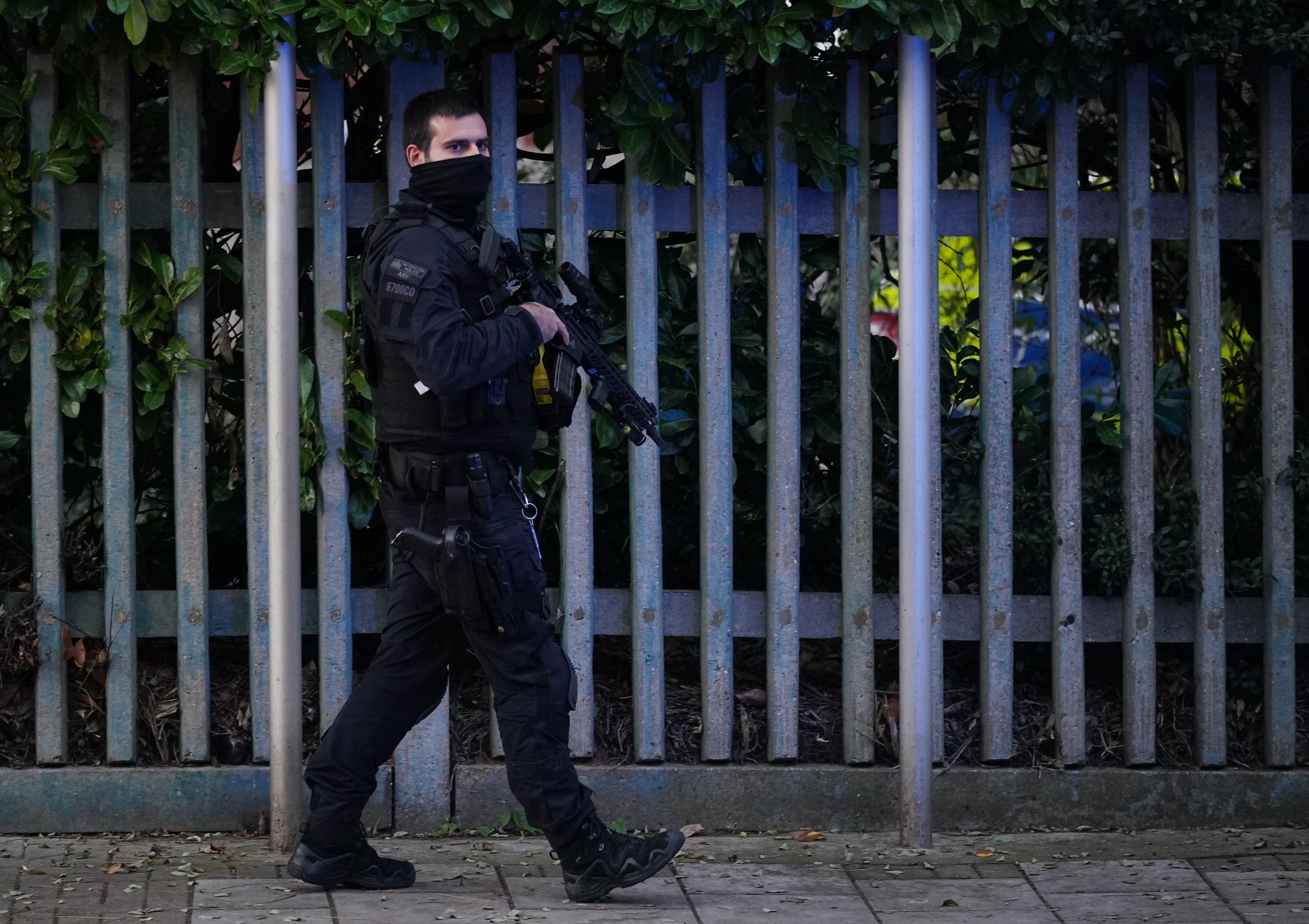Police and MI5 ‘very much alive’ to danger of extremists freed from prison

Your support helps us to tell the story
From reproductive rights to climate change to Big Tech, The Independent is on the ground when the story is developing. Whether it's investigating the financials of Elon Musk's pro-Trump PAC or producing our latest documentary, 'The A Word', which shines a light on the American women fighting for reproductive rights, we know how important it is to parse out the facts from the messaging.
At such a critical moment in US history, we need reporters on the ground. Your donation allows us to keep sending journalists to speak to both sides of the story.
The Independent is trusted by Americans across the entire political spectrum. And unlike many other quality news outlets, we choose not to lock Americans out of our reporting and analysis with paywalls. We believe quality journalism should be available to everyone, paid for by those who can afford it.
Your support makes all the difference.Police and MI5 are making “a serious investment in terrorist lifetime offender management” due to the long-term threat posed by freed terror offenders, the country’s top counter-terrorism officer has said.
The threat from those convicted has become a growing challenge for police and Assistant Commissioner Matt Jukes said police were “very, very much alive” to the danger that released extremists presented to the public.
Following attacks by freed terror convicts, there has been rising concern about short sentences given to extremist offenders. The incidents also raised issues about the effectiveness of de-radicalisation efforts in the prison system.
In November 2019, Saskia Jones and Jack Merritt were killed by Usman Khan at Fishmongers’ Hall, London after he was released from prison on licence in December 2018. He was convicted of plotting to set up a terrorist training camp in 2012. In February 2020, Sudesh Amman, another released terrorist offender, stabbed two people on Streatham High Road, London.
After the attack in Fishmongers’ Hall, legislation to enforce longer sentences for some terror offences was passed.
However, this means sometimes offenders have to be arrested for lesser crimes carrying shorter terms so their plots can be intercepted before it’s too late.
Freed terror convicts are believed to now represent a significant proportion of the potentially dangerous extremists surveilled by the police and MI5.
Speaking to the Evening Standard, Mr Jukes said: “Since 2010 and indeed from the periods before we’ve seen increasing numbers of terrorism arrests .. but people will eventually come back out into our communities nonetheless and so we face the challenge of managing people who are suspected now of being involved in terrorism who have served sentences for terrorism offences who are back in communities.”
He continued: “Very much because of those hundreds of arrests that have been made, a key feature of our work now.
“The risk of reoffending is obviously present. It’s absolutely not the case that people spend their time being investigated, they go to prison, we forget about them and they return to our communities.
“We are very, very alive to and acting in relation to the risk of reoffending, at the same time as trying to work with our partners to reduce those risks of reoffending through a host of things like ensuring that people are getting mental health interventions where necessary, are housed in places and ways that are constructive to reducing the risk that they might present, and trying to support people to move on and get past their offending history.”
Mr Jukes said that although “many of those convicted will not go on to reoffend” police were now making “a serious investment in terrorist lifetime offender management” and had increased their resources with “a dedicated operational response” throughout London and the rest of the country.
He added: “There is a joint centre focused on terrorist offender management in communities and in prisons between those organisations and so it’s very much a question now of seeing that risk presented across an individual’s life, through our early investigation, through their time in prison and through their time into communities.”
He also encouraged the public to be “vigilant in their groups of friends, their family, to people whose behaviour is changing”.
Nine of those sentenced for terrorism-related offences during the 12 months to the end of September 2021 were given a term of one year or less, according to Home Office figures released last year.
A further 16 were sentenced to between one and four years, and only two offenders received life terms. The figures also showed that 60 convicted terrorists were released during that 12 month period.
Join our commenting forum
Join thought-provoking conversations, follow other Independent readers and see their replies
Comments